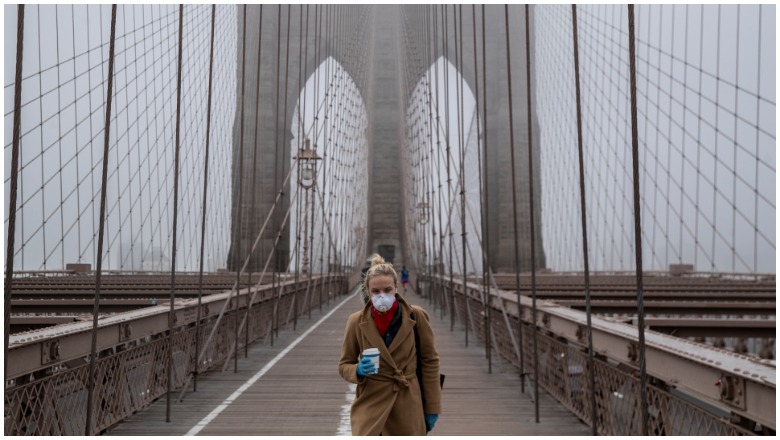
Getty Does coronavirus cause anosmia, AKA loss of smell?
Coronavirus might cause loss of smell, among other symptoms, which is known as “anosmia.” This is not a confirmed symptom by an organization like the Centers for Disease Control & Prevention, but more and more doctors are providing anecdotal evidence of this symptom in patients who have tested positive for COVID-19.
In a statement on March 22, the American Academy of Otolaryngology — Head and Neck Surgery suggested that experts start officially recognizing the loss of smell as a symptom of coronavirus:
Anecdotal evidence is rapidly accumulating from sites around the world that anosmia and dysgeusia are significant symptoms associated with the COVID-19 pandemic. Anosmia, in particular, has been seen in patients ultimately testing positive for the coronavirus with no other symptoms. We propose that these symptoms be added to the list of screening tools for possible COVID-19 infection. Anosmia, hyposmia, and dysgeusia in the absence of other respiratory disease such as allergic rhinitis, acute rhinosinusitis, or chronic rhinosinusitis should alert physicians to the possibility of COVID-19 infection and warrant serious consideration for self-isolation and testing of these individuals.
Here’s what you need to know:
Why Does Coronavirus Potentially Cause Anosmia, AKA Loss of Smell?
Though it might seem like a strange symptom at first, it’s actually quite common for people to lose their sense of smell with a viral infection.
Dr. D.J. Verret, a doctor who’s board certified in otolaryngology, head and neck, and facial plastic surgery, told ABC News, “The sense of taste and smell are very closely related.”
He added, “We know from previous research that coronavirus infections are seen in post-viral anosmia. It is therefore not a stretch to think that COVID-19, caused by a coronavirus, can result in smell or taste disturbances.”
Claire Hopkins, president of the British Rhinological Society, confirmed the rising prevalence of anosmia in COVID-9 patients in an interview, explaining, “All of this evidence is accumulating very rapidly, but there’s nothing yet robustly in print. Since then, I’ve had colleagues from around the world saying: ‘That’s exactly what we’re seeing.’ They’ve been trying [to raise awareness], but it hasn’t been picked up.”
The connection between coronavirus and this particular symptom could be helpful for one specific reason: it might help people who are otherwise asymptomatic to become aware of a potential coronavirus infection.
One statement by The Royal College of Surgeons noted that 30% of mild cases of coronavirus in South Korea included loss of smell as the main or only symptom manifesting in patients. So if people are having trouble with their sense of smell, but don’t have any other more established COVID-9 symptoms, like a fever or shortness of breath, this indicator might help them to social distance more carefully, or get medical help if they think they need it.
